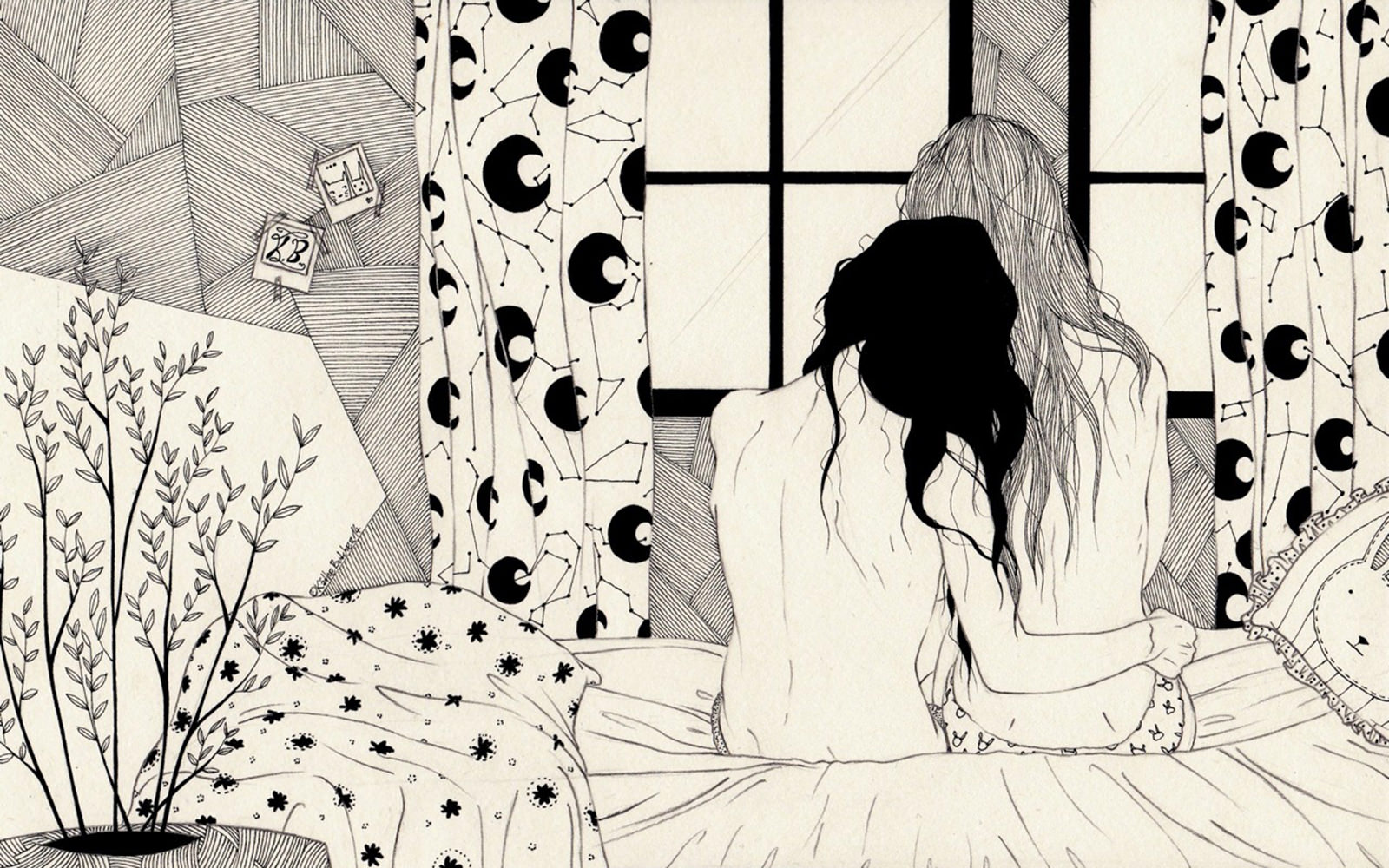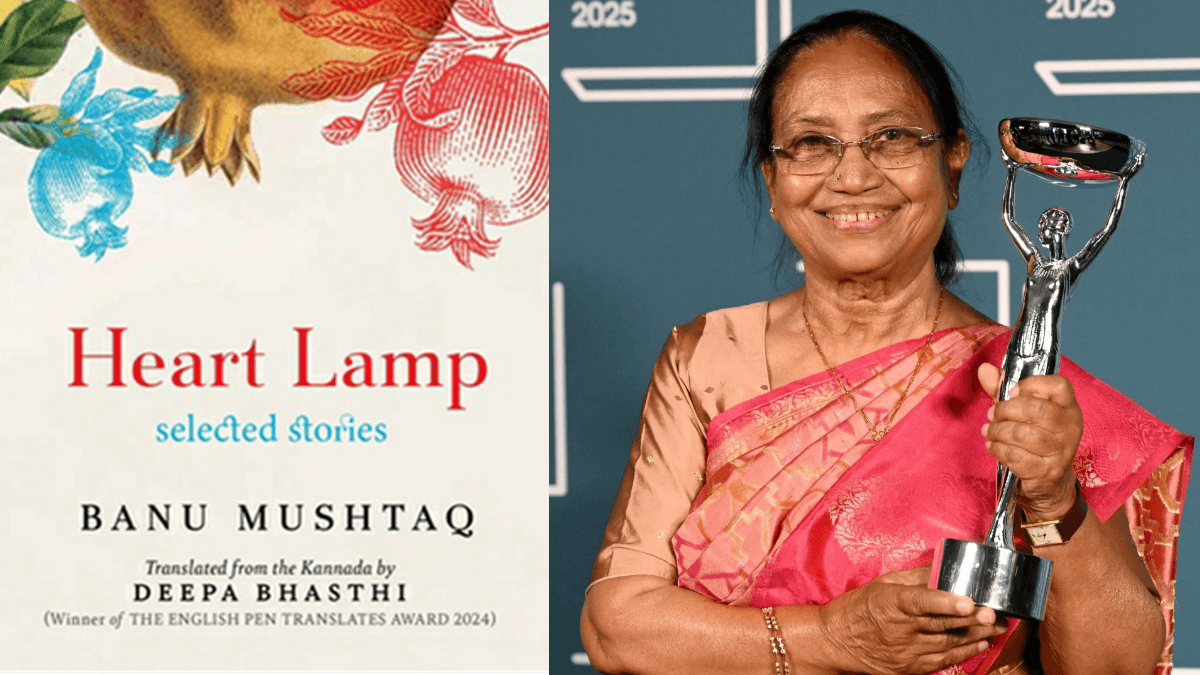“I’ll always be the virgin-prostitute, the perverse angel, the two faced sinister and the saintly woman.” – Anais Nin.
Erotica as a genre is not a new area of exploration but the restriction rendered to women`s perusal and partake in it seems as old as its genesis. Women around the world have been surviving a social condition where different parts of the woman’s body is objectified, sexualized and yet it is this body, her expression and exposure which is arbitrarily denounced. Speaking of erotic novels and literature, it is often and quite unanimously considered a man’s pursuit. We, time and again, have fallen upon a man’s portrayal of women’s bodies and desires until our women emphatically and rightfully claimed their space and efficiency to pen down open dialogues about sexuality, sexual desires and fantasies. They got their protagonists to be far more engaging and willing to erotic acts and not simply as passive receivers of pleasure following a desperate man’s rubric.
Speaking of erotic novels and literature, it is often and quite unanimously considered a man`s pursuit. We, time and again, have fallen upon a man`s portrayal of women’s body and desires until our women emphatically and rightfully claimed their space and efficiency to pen down open dialogues about sexuality, sexual desires and fantasies
It is to celebrate the bold and firm authors of India, who did not hesitate to discuss themes that consequently questioned their morality, accused them of obscenity and indecency. Ismat Chughtai`s ‘Lihaaf’, ‘Lifting the veil’, were read, appreciated and criticized, created an impact that indeed publicized women’s sexual predilection. Women alike her living in Indian society embraced their right to sexual freedom, thereby, pioneering a journey of a kind of struggle that still needs to be fought by women in their mundane day-to-day life in the households as well as on the road.
Here is an attempt to reflect on some of these bold figures in today’s time who have upheld this tradition of “defying patronage” to women desires.
Sreemoyee Piu Kundu A.K.A. Queen of Indian Erotica
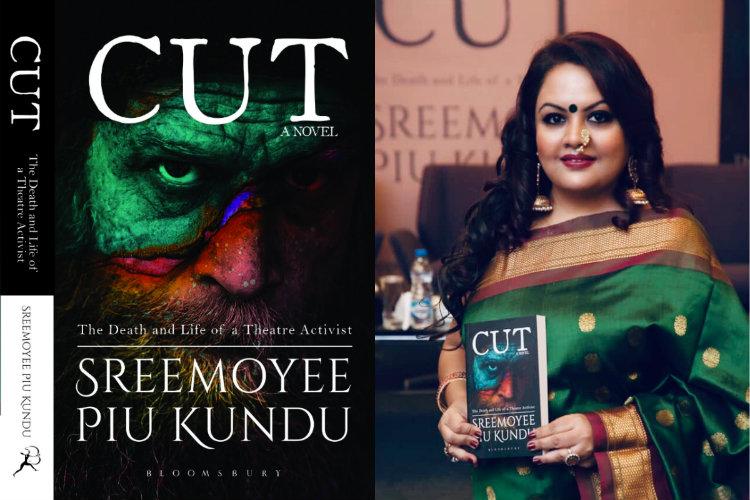
“Somewhere, behind closed doors, in their solitary worlds,
Somewhere, under the sheets with an indifferent lover
Somewhere, is the woman
Who will not be denied…”
A woman in her 40s, from Kolkata raised by a single mother debuted into the field of literature and more importantly erotic literature through her book ‘Faraway Music’. Sreemoyee, after the completion of a decade in her career of print journalism, she has been nurturing her dream of becoming a novelist and so she did.

She made her appearance far more firm with her second book ‘Sita’s Curse’; one of her most celebrated piece that centered round Meera, a middle-class, Indian-housewife living a dull, insipid, tamed married domestic life for fifteen years starting to seek respect, acceptance and fulfillment of sexual desires. ‘Sita’s Curse’ (2014) came out to be the first feminist erotica. Following the BJP win then, many suspected it would invoke severe rebuking given the title of the book, however, it gained immense appreciation and honoured her with the title of “Queen of Indian Erotica” along with the NDTV “Women of Worth” award.

She believes, “Feminist erotica is about strong women having dialogues with themselves, discovering who they truly are…It explores the many facets of Meera, of womanhood, in all of us. The woman. The wife. The daughter. The mother. The lover. The whore. The Goddess.”
Sreemoyee has also been a life-style editor, a PR head and is now living a life of a novelist settled in Delhi. Her third book ‘You`ve Got The Wrong Girl!’ although written in a “lad lit style” of a man`s search of love, romance, both sexually promiscuous and experimental involves women as equally participating and shrewd subjects of attention.
“I think erotica is a space that should be filled by quality writers who give importance to the craft of eroticism and not try to titillate the reader by writing a sensational book. The sensuality is the sacredness of a good erotic novel, and that lyricism should be retained as it is something that is also our cultural heritage, if you look at the long association of erotica with Indian literature.”
Balli Kaur Jaswal
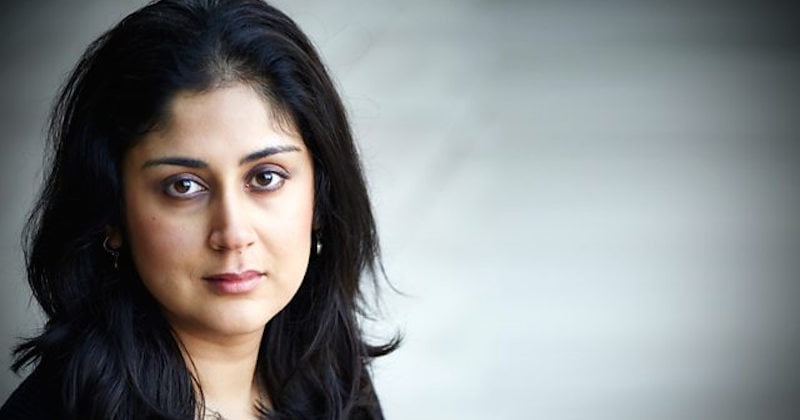
She is a Singaporian novelist, with family roots in Punjab, inspired by her time in Southall who has gone deeper into making conversations possible about the desires, particularly for Punjabi widows. She is the awardee of “Best Young Australian Novelist” 2014 following her first publication “Inheritence”.
“I find it worrying when women buy into this narrative about how they should behave, but even more so when they start reprimanding other women. It’s an insidious way to maintain compliancy, and it has its roots in the larger policing carried out by men, especially in conservative communities.”
Her third novel, “Erotic stories for Punjabi Widows” premised on an enthusiastic girl aspiring to run a creative writing workshop at Gurudwara, certainly a place of worship, is confronted with a bunch of “bored”, “barely literate” Punjabi widows who merely enrolled themselves to pass time. However, quite surprisingly they begin to share racy stories quickly transcribed by a young educated widow. Exploration of the Indian Punjabi community through a vivacious group of women is an impressive attempt to accentuate women’s fight for space and the survival of feminism within communities in unknowing ways by educated and even “barely literate” women.

“I’ve had a lifelong fascination with questions surrounding identity, migration, women’s sexuality and notions of honor in close-knit communities, among other things. I was particularly interested in how elderly traditional women experienced and expressed desire in these male-dominated communities, and I started questioning what would happen if I got those women together and gave them a space to talk freely about what they wanted…”
Sangeeta Bandyopadhyay: India’s Elena Ferrante
Born in 1974, she started writing from a very young age and was preoccupied with the themes of love and separation. At the age of 28 she made her debut with “Sankhini” which became a success. This Bengali writer, best known for her book “Panty” was published for the second time (Penguin India, 2015) along with this, her work “Hypnosis” was an important step for Bengali literature which openly presented honest sexual desires.


The story centers round the protagonists desperation in response to her lover’s reluctance to acknowledge their relationship in public which makes her check into another empty apartment in Kolkata where she comes upon a discarded panty with “leopard print” and on trying it, becomes possessed by the wild sexuality of its previous owner. Given the storyline and the title this work was criticized as highly inappropriate and “shocking” and accused of hurting Bengali sentiment.
However, it did lay a mark in field of Bengali feminist erotic literature. Being a writer of a regional language, she feels renders her greater scope in dealing with the rawness and authenticity of a middle-class, Bengali, Kolkata based protagonist, speaking extensively and explicitly about sexuality in her “mother-tongue”. Most of her work has been translated by Arunava Sinha. Bandyopadhay have been successful in taking Bengali erotic literature to international audiences.
These are women from different parts of India have risen against not only the larger social structure but also their immediate social relations who denied them the power to articulate their own perceptions about a body, a mind, a social position which belongs to them.
Dr. Sarojini Sahoo
Sahoo born in a small town of Dhenkanal, Orissa. Sahoo is an acclaimed Indian Feminist writer, efficiently dealing with the complex and intricate fabric of relationship, the constant struggle between patriarchal challenges to female sexuality. Her writings are said to be marked with “sexual frankness”, candidly dealing with female sexuality.
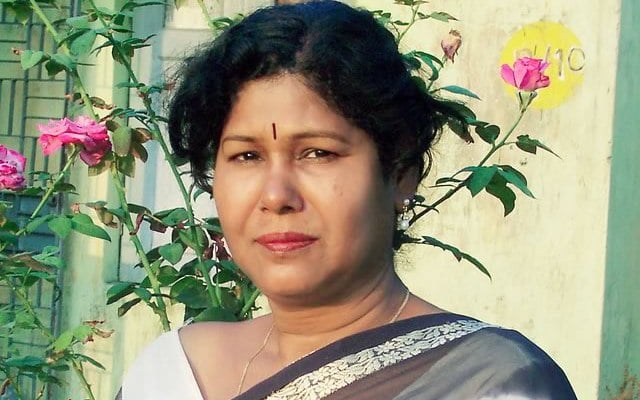
Sahoo was able to present the thought that one’s sense of art and sexuality could to traced back to a link with their ethnic or geographical identity which subtly represented the intertwining of culture and individualism. Her collected essays “Sensible Sensuality” was a successful attempt to redefine feminism with eastern perspective and explored the major role played by sexuality in the understanding of eastern feminism.
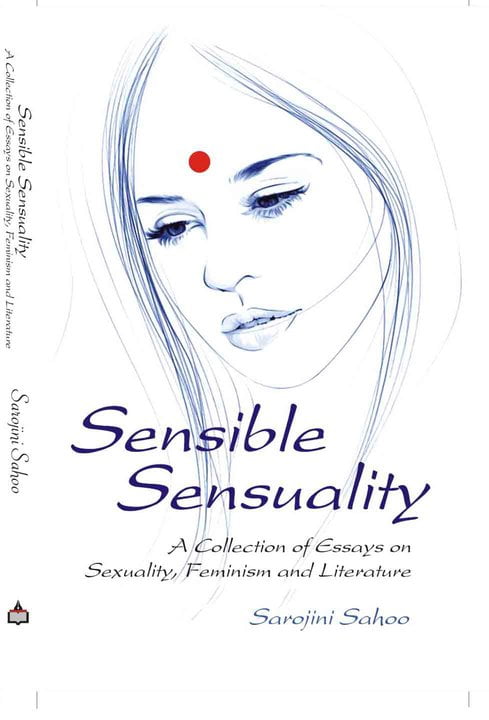
“Upanibesh” was her first explicit attempt focused on sexuality as a social revolt against the rigid patriarchal social structure by women at a very personal regular level; using the symbol of Shiva Linga to represent womens sexual desire, the protagonist, Medha, a Bohemian had started to question monogamy and commitment; thinking of a life-long marriage as monotonous. However, under societal pressure although she enters into marriage, music becomes her world of escape and rebirth of her sexuality.
Also read: Fingers To Scroll And Fingers To Touch: What Erotica Taught Me
Her novels go deeper into discussions and exploration of lesbian sex, rape, infertility, abortion, menopause and much more. Enlisted among 25 Exceptional Women of India by kindle magazine is an Indian feminist writer whose works cannot be reduced to just sexuality rather is an exceptional blend of sexuality with many other aspects of culture, class, ethnicity and geography even the intertwining of state and the individual.
Along with these women, we have equally potent; Rosalyn D’Mello (A Handbook For My Lover), Ruth Vanita (Gender, Sex, and the City: Urdu Rekhti Poetry in India), Sheba Karim (Alchemy: The Tranquebar Book of Erotic Stories 2), Urvashi Butalia (Inner Line: The Zubaan Anthology of Stories By Indian Women) and the strong unapologetic sensuous voice from the Tamil-Nadu based Aranyani (pseudonym) in her “A Pleasant Kind of Heavy and Other Short Stories”.

Image Source: hms.edu
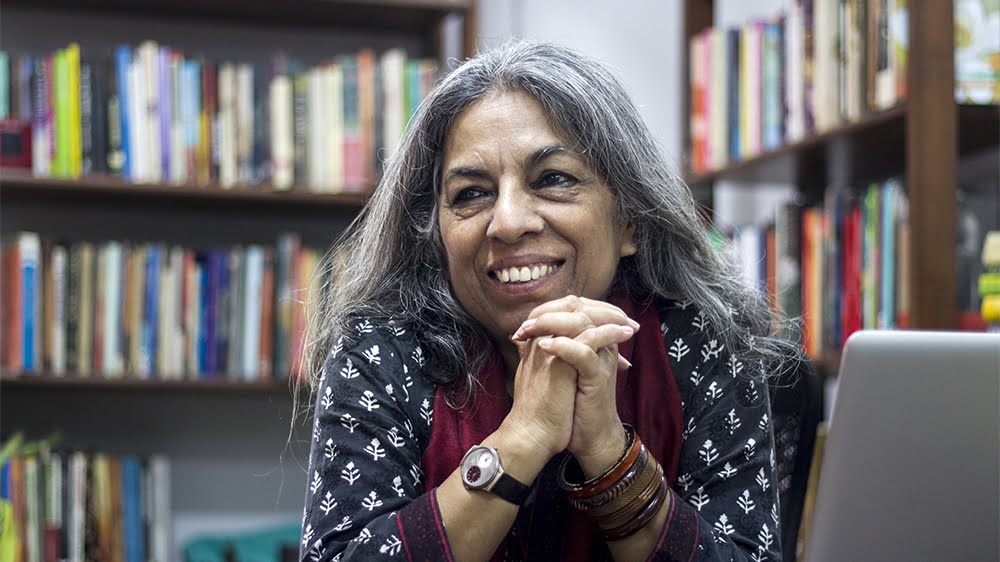
Image Source: Kindle Magazine
These are women from different parts of India have risen against not only the larger social structure but also their immediate social relations who denied them the power to articulate their own perceptions about a body, a mind, a social position which belongs to them. Reading into these texts imply lucid understanding of not only sexuality but also other social factors like class, gender, ethnicity, religion, region which shapes and situates the characters in the story.
The “intersectional” aspects as also equally influencing lust, desire, fantasies and sexual predilection and its access to women are elegantly and patently disseminated in their erotic writings. Their attempts have placed women desires and needs in the public space dragging it outside of traditional closed doors that rendered it “sinful” in a society which places women on pedestal as goddesses and vanquish them as human subjects.
Also read: Tryst With Kink: Brushstrokes Of BDSM On My Sexuality
It is therefore more engaging when Balli Kaur Jaswal said, “Awareness of intersectionality is an issue. That’s the idea that there is no one-size-fits-all approach to feminism and especially that women from certain backgrounds are vulnerable to other forms of oppression which influence and compound their experience of sexism as well.”
Sayantani has completed my graduation in sociology from St.Xavier`s College (autonomous), Kolkata. Recently she is pursuing M.A in sociology from Calcutta University. She has always been passionate about books and words and have gradually developed a proclivity towards writing. Sociology has only done better in confronting her with both mundane and severe issues on which she would like to articulate her opinion. She enjoys movies, series and further discussions on them. She is more of a family person and likes spending time with my family and mostly, with myself. You can find her on Facebook and Instagram.
Featured Image Source: 6 Million Dollar Story
Illustration by: Kaethe Butcher
